This interview was originally published in April 2019. Danielle was born in NSW, Australia, and graduated from The Royal Ballet School, UK, in 2013. She has been with Berlin Staatsballett in Germany since then, and is an outspoken advocate for better mental health awareness in the dance world. Her blog http://www.butterflydiaries.home.blog allows the reader deep insights into her own struggles with mental health.
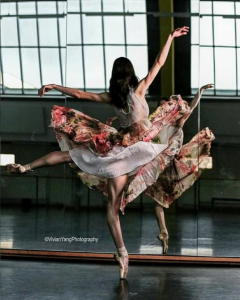
Q: You mentioned that you had your first severe bout of depression while in your last year at The Royal Ballet School. How come this was not diagnosed there? Did you see a doctor – and if yes, what/how was it labelled and treated?
A: When I first started suffering from depression, I didn’t have any idea what was wrong, so I didn’t know how to communicate it to anyone. I also didn’t really feel that there was anyone at the school I could talk to about it. I just felt that I needed to go home. I saw a doctor in Australia who diagnosed me with clinical depression and prescribed me with mild antidepressants. She also recommended I see a psychiatrist but at that time I wasn’t ready to speak to someone about it.
Q: It appears that your doctor in Australia was quick and straightforward in diagnosing depression. Did she have a background in dance?
A: The doctor who diagnosed me with depression was also my mother’s and sister’s doctor and they had both been diagnosed with depression as well. Although she didn’t have a background in dance, I went to school with her daughter so she had known me since I was very little and she knew my family well.
The antidepressants seemed to be the best option at the time. I didn’t feel comfortable with psychotherapy because I couldn’t really talk openly with a stranger. And exercise was obviously not a helpful form of treatment. I think it would be helpful if you were able to do some easy, stress free exercise for a short time but ballet training is too intensive and stressful so it only makes it more difficult to deal with depression.
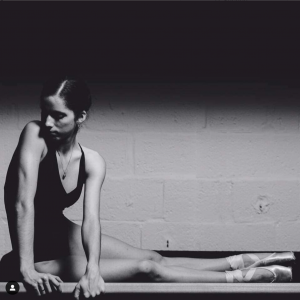
Q: Why do you think there are still so many people not daring to speak about their mental health struggles? Do you sometimes feel slightly anxious if your openness may backfire?
A: I think it can be so hard to talk about because people who haven’t experienced these kinds of mental struggles themselves, often mistake it for sadness or just feeling bad. So it feels like if you share your feelings with them, you will be misunderstood and it’s better to keep it to yourself than to have people think you are just being overly-sensitive or dramatic.
I am not afraid of backfire because even if I were to receive any, it’s much more important for me to speak out and help those who need the support than to protect myself from people who might disagree with me. I would have benefited immensely from being able to read about someone who was going through something similar to myself at the time, so I hope to be that person for others.
Q: In one of your blog posts, you write about being a ‘sensitive person’, and you describe how you have learned to avoid being consumed by other people’s negative energy. Do you think this sensitivity comes with a positive side too?
A: I find being a sensitive person to be a very positive thing as well as a challenge. My sensitivity allows me to be compassionate and kind towards other people no matter their situation. I know what it’s like to be quietly struggling and I never know who else might be going through something as well. So I am able to be more empathetic to others and treat them gently and kindly.
It also allows me to have much more compassion and kindness towards myself. I know when I need to go easy on myself and when I’m struggling, I can do what needs to be done in the moment to make myself feel better. I have learned to give myself as much kindness and respect as I would give to anyone else I care about.
And lastly, it definitely makes me a better artist. When I perform, I always dance with purpose and the emotion comes from a real place. I think sensitive people make the most beautiful and moving artists.
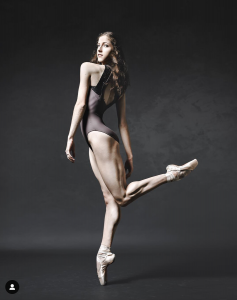
Q: How much did the experience of your husband and his own struggles help you? You mention this very often and – every now and then – it appears he was more helpful than any medical professional?
A: The first reason that my husband was so helpful to me is because I trust him more than anyone and I feel completely comfortable to be myself and to be open and honest around him. It’s much easier to get real help when you can share everything, and I have never been able to do that with anyone else – especially not with any psychotherapist or doctor.
He was also incredibly helpful to me because he has a different way of dealing with mental struggles than what I do, and his approach was something that I really needed to learn. He is able to separate himself from his thoughts and feelings and look at the situation objectively. He is also very thoughtful and sensitive but he knows that his thoughts and feelings are not ‘him’ and he can prevent them from taking over. I think I needed a different perspective of my situation to help me become stronger.
Q: What do you think determined why you were able to stay strong when your teacher at RBS talked to your class about ‘needing to tone up’?
A: I have always struggled with body image like so many dancers, but I have never struggled to the point where I can’t see the reality of the situation. I may compare myself to others sometimes and think I should look different or be skinnier, but I can also step back from those thoughts, look at myself and know that there is nothing wrong with my body and I should never become unhealthy just to fit a certain aesthetic. Unfortunately, some people are not able to see themselves clearly this way, but I’m lucky that in this sense I am able to stay objective most of the time. It was also very clear to me that all the other girls in my class had beautiful bodies so it just didn’t seem logical to me.
Q: Your thoughts on the double whammy that mental health struggles are still too often considered a stigma AND the problem that the majority of medical professionals don’t have a clue about the life of a dancer?
A: The life of a dancer is an incredibly stressful one, filled with a lot of pressure and difficult moments, even without the added struggle of a mental illness. I find that medical professionals may know how to help you deal with mental illness but they don’t know how to help you deal with the challenges of a career as a dancer. And dance professionals may know how to help you through the challenges of this career but they often don’t know how to help you if you’re having mental struggles. So it’s really hard to find someone that can understand what it’s like to be dealing with both of those things and who can give you any helpful advice. It feels like the mental health side of dance is totally under represented so when you’re struggling, you feel pretty much alone.
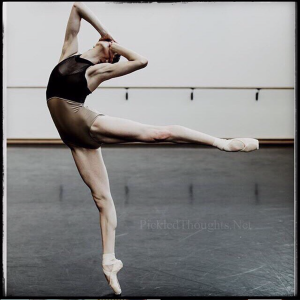
Q: Let’s talk about this narrow-mindedness that taking a day off is a sign of weakness and insufficient dedication: Do you think this stems (partially) from the days when teachers/ballet masters/ballet mistresses/choreographers working with companies today were also dancers and never allowed themselves to listen to their own bodies (and minds) – aka their primary needs? And now they pass on their knowledge without ever questioning what happened to them? Thereby completely ignoring the progress psychology and medicine have made?
A: A lot of today’s teachers and company coaches come from a background of really tough, old school training. When they were still students, their own teachers were maybe not aware of the mental pressure that was being put on the students or they didn’t realise how important it is to be mentally healthy. So those who are teaching now, are simply passing on the same advice and using the same teaching methods that were used on them when they were young. They also often teach as if every student is exactly the same. We all have very different physical and mental limits and I think teachers have to become more aware of that. Of course as a ballet dancer you have to push yourself and you need a teacher who is going to challenge you, but health is the most important thing and if you are being pushed too far, you will end up burning out. Dance is an art form. It’s supposed to be a way of expressing ourselves, having fun and entertaining an audience. We can’t bring joy to other people if we are overworked and unhappy.
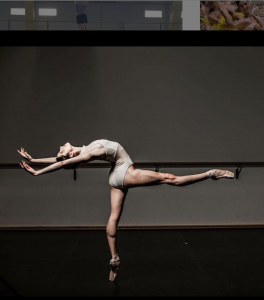
Q: If there was one thing you could tell your younger self, what would it be?
A: I would tell myself: ‘you have to be kind and patient with yourself. Fighting against yourself will only make life harder. And no matter what, you have to love and care for yourself. Always.’